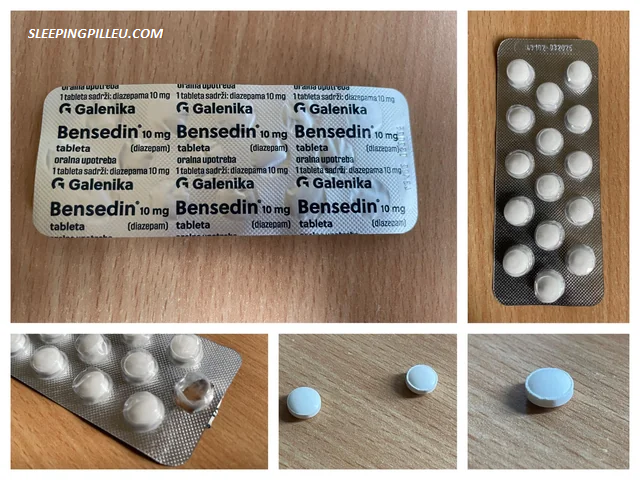Bensedin is the brand name for the medication, diazepam, a medication belonging to the benzodiazepine class. It is commonly prescribed for its calming, relaxing, muscle-relaxing, and anticonvulsant effects. diazepam acts directly on the brain’s central nervous system by enhancing the effect of a certain neurotransmitter, GABA (gamma-aminobutyric acid), in the brain.
Here are the major uses of Bensedin:
1. Anxiety Disorders
Bensedin is widely used to manage mental health disorders like generalized anxiety disorder (GAD), panic attacks, and short-term anxiety symptoms. It helps by reducing excessive neural activity in the brain that contributes to anxiety. The medication is often prescribed for acute anxiety episodes, not for long-term use due to the risk of dependence.
2. Muscle Spasms
Bensedin is highly used to relax skeletal muscles in conditions like muscle injuries, muscle spasms, spasticity, and neurological disorders (e.g., multiple sclerosis). It is effective in treating back spasms, muscle spasms and tension-type pain.
3. Seizure Control
Bensedin diazepam is effective in managing symptoms of seizures, especially status epilepticus (a prolonged seizure emergency).
Whereas, sometimes it is used as an adjunct in long-term epilepsy treatment.
4. Alcohol Withdrawal
The medication helps in reducing the symptoms of acute alcohol withdrawal syndrome such as agitation, tremors, irritation, hallucinations, and seizures. It is highly used in detoxification programs to manage delirium tremens.
5. Sedation Before Medical Procedures
Bensedin is administered before medical procedures like endoscopy, minor surgeries, or dental work to reduce pain and anxiety and induce calmness. It is used as a preoperative sedative.
6. Insomnia (Short-Term Use)
Doctors occasionally prescribe bensedin for short-term relief from severe insomnia, especially when it is caused by other mental health conditions like anxiety or stress. It is not recommended for the treatment of chronic insomnia due to tolerance, addiction and dependence risks.
7. Adjunct in Psychiatric Treatment
Bensedin is sometimes used along with other medications like antidepressants or antipsychotics to manage acute agitation, fear, mania, or psychotic episodes.
8. Panic Disorders
The medication offers rapid relief during panic attacks when used occasionally or when needed and under prescription and strict medical supervision.
9. Vertigo and Dizziness
The medication is used occasionally to manage vertigo symptoms, especially when caused by inner ear disturbances (e.g., Meniere’s disease) and to reduce dizziness caused by it.
Important Note:
Short-Term Use of bensedin: Bensedin is generally recommended for short-term or intermittent use only due to the high risk of tolerance, dependence, addiction and withdrawal symptoms.
Controlled Substance: Bensedin diazepam is included in a schedule IV controlled drug in many countries.
Not for Everyone: It should not be used by everyone, especially without a prescription. It should be avoided or used with proper caution in patients with liver disease, kidney problems, respiratory disorders, or a history of substance abuse.
Always use Bensedin under the guidance of a qualified psychiatrist or professional healthcare provider. Misuse or overuse of bensin can lead to serious health risks, including addiction, dependence and withdrawal symptoms.
